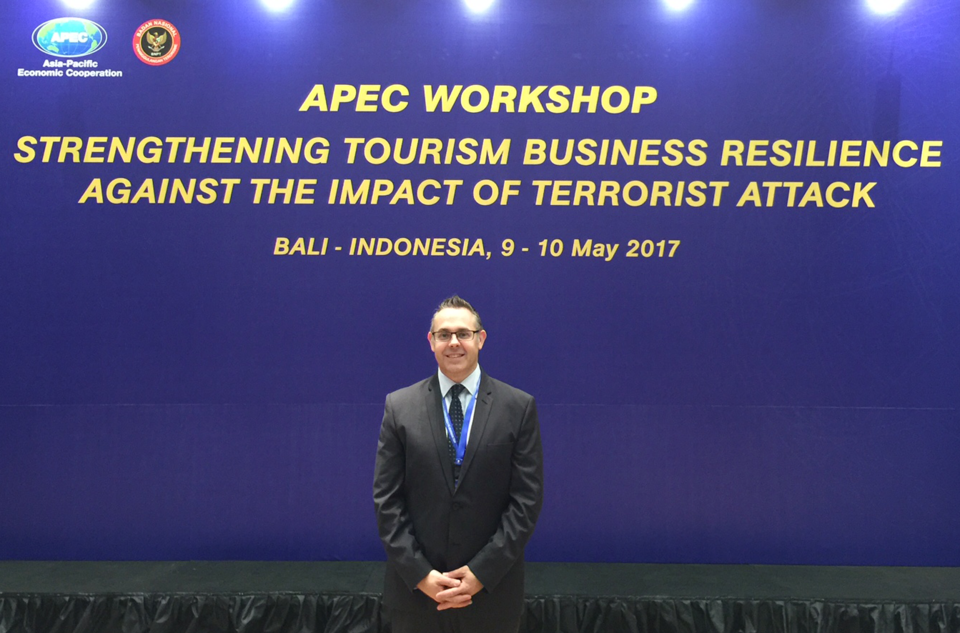
As seen from the recent attacks in Manchester and London, tourists are sometimes directly targeted by terrorists, and sometimes they become unintended victims of terrorist attacks directed at local residents.
Professor Brent Ritchie from UQ Business School is an expert on tourism risk management and was one of three invited Australian speakers at a recent APEC counter terrorism workshop on terrorism and tourism.
The workshop focused on strengthening business resilience against the impact of terrorist attacks and Professor Ritchie’s presentation focused on tourism business recovery from terrorist attacks: both short and longer term responses.
“The tourism industry is comprised of mostly small and micro enterprises. After a terrorist attack tourist numbers drop, so businesses may need government assistance to help them through this period”, Professor Ritchie said.
He argued that “to be most effective, business assistance programs need to be simple, easy for businesses to access and focused on the sectors most impacted by an attack.”
In the medium term as the negative news coverage of a terrorist attack subsides the long term focus should be on recovery marketing to bring tourists’ back to the affected area.
During his workshop, Professor Ritchie drew on the use of social marketing campaigns along with traditional marketing, and used the Call Brussels campaign as a good example.
The campaign helped potential tourists to call and speak to actual residents in Brussels about the situation – countering the negative and inaccurate media reporting.
However, he noted that “different markets will respond differently based on their knowledge and experience with the destination. Communication strategies and channels will need to be tailored to suit these markets.”
Professor Ritchie highlighted that although tourist arrivals to France are now back to similar numbers after terrorist attacks, the high spending Chinese and Japanese visitors are still declining.
The APEC workshop, which was held in Bali, Indonesia, from the 9 to 10 May, was attended by over 120 government officials, security experts and tourism industry leaders from 18 of the 21 APEC (Asia Pacific Economic Cooperation) countries.



